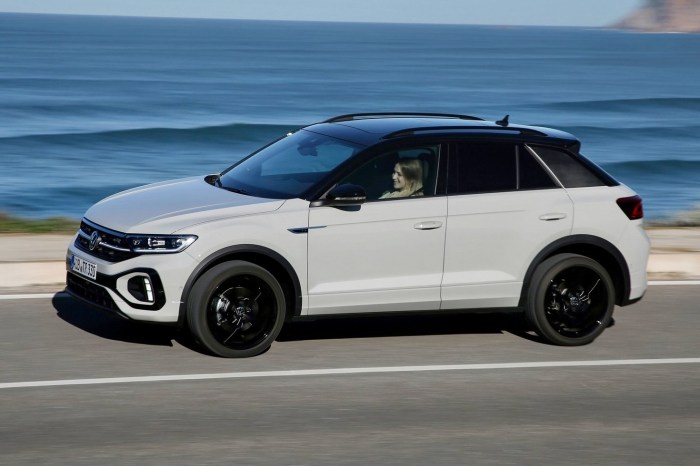Why you shouldn’t buy a Volkswagen? This question deserves a closer look, especially if you’re considering investing in one of these German machines. From high maintenance costs to reliability issues, depreciation concerns, and more, this comprehensive guide delves into the reasons why you might want to reconsider your Volkswagen purchase.
As we explore each aspect, we’ll provide specific examples and insights to help you make an informed decision. Get ready to uncover the hidden truths behind Volkswagen ownership and discover why it may not be the best choice for your automotive needs.
High Maintenance Costs

Volkswagen vehicles are known for their high maintenance costs compared to other car brands. This is primarily due to the complexity of their engineering, the use of premium parts, and the high labor rates charged by dealerships.
If you’re considering buying a Volkswagen, you might want to reconsider. These cars are notorious for their reliability issues, and you could end up spending a lot of money on repairs. If you do decide to buy a Volkswagen, be sure to find a reputable mechanic who can service it properly.
You can find a list of qualified mechanics in your area by clicking here: where to service volkswagen . Even with regular maintenance, Volkswagens are still more likely to break down than other cars, so it’s important to be prepared for the possibility of expensive repairs.
Common Repairs and Associated Expenses
Some of the most common repairs associated with Volkswagens include:
- Timing chain issues: Timing chain problems can occur in certain Volkswagen models, requiring expensive repairs that can range from $2,000 to $6,000.
- Water pump failure: Water pump failures are another common issue in Volkswagens, with replacement costs typically between $500 and $1,000.
- Electrical problems: Electrical problems, such as faulty sensors or wiring issues, are also common in Volkswagens and can be costly to diagnose and repair.
Impact on Overall Cost of Ownership
The high maintenance costs of Volkswagens can significantly impact the overall cost of ownership. In addition to the cost of repairs, Volkswagen owners may also face higher insurance premiums due to the brand’s reputation for expensive repairs. This can add up to a substantial financial burden over the life of the vehicle.
Poor Reliability: Why You Shouldn’t Buy A Volkswagen
Volkswagens have consistently ranked below average in reliability surveys conducted by organizations like J.D. Power and Consumer Reports. These surveys evaluate various aspects of vehicle performance, including frequency of repairs, severity of problems, and owner satisfaction. Volkswagens have been plagued by a number of issues, including electrical problems, transmission failures, and engine malfunctions.
Volkswagen cars are notorious for their reliability issues, so much so that you might be wondering if Volkswagen can even unlock your car. If you’re having trouble getting into your Volkswagen, you’re not alone. Many Volkswagen owners have reported problems with their car’s keyless entry system.
Can Volkswagen unlock your car ? The answer is yes, but it’s not always easy. If you’re having trouble getting into your Volkswagen, you may need to call a locksmith or tow your car to a dealership.
Electrical Problems
Electrical problems are a common issue in Volkswagens. These problems can range from minor annoyances, such as flickering lights or malfunctioning power windows, to more serious issues, such as engine control module failures or battery drain. Electrical problems can be difficult to diagnose and repair, and they can often lead to other problems.
One reason you shouldn’t buy a Volkswagen is that they can be expensive to maintain. For example, you might have to use premium gas, which can cost more than regular gas. To find out more about whether Volkswagens need premium gas, check out this article: do volkswagens need premium gas . But even if you don’t have to use premium gas, there are still other maintenance costs to consider, such as repairs and parts.
Transmission Failures
Transmission failures are another common issue in Volkswagens. These failures can range from minor shifting problems to complete transmission failure. Transmission failures can be very expensive to repair, and they can often leave drivers stranded.
The Volkswagen Jetta is a popular car, but there are several reasons why you shouldn’t buy one. One reason is that the Volkswagen Jetta windshield washer hose is known to fail prematurely. This can be a major inconvenience, especially if you live in an area where it rains or snows frequently.
If you’re considering buying a Volkswagen Jetta, be sure to factor in the cost of replacing the windshield washer hose. You can find more information about the Volkswagen Jetta windshield washer hose here . Another reason why you shouldn’t buy a Volkswagen Jetta is that it has a history of reliability problems.
Engine Malfunctions
Engine malfunctions are also a common issue in Volkswagens. These malfunctions can range from minor oil leaks to catastrophic engine failure. Engine malfunctions can be very expensive to repair, and they can often lead to other problems.
Depreciation Value

Volkswagens are known to depreciate in value faster than many other car brands. This means that the value of your Volkswagen will decrease more quickly over time, which can impact your financial situation if you plan on selling or trading in your car in the future.
Factors Contributing to Lower Resale Value
There are several factors that contribute to the lower resale value of Volkswagens. One factor is the high cost of maintenance and repairs. Volkswagens are known for being more expensive to maintain than many other car brands, which can deter potential buyers.
Another factor is the perception that Volkswagens are less reliable than other car brands. This perception is based on the fact that Volkswagens have consistently ranked below average in reliability surveys.
Lack of Innovation
Volkswagen has a reputation for being a conservative automaker, and this is reflected in its recent models. The company has been slow to adopt new technologies and features, and its cars often feel outdated compared to those from its competitors.
For example, Volkswagen was one of the last automakers to offer Apple CarPlay and Android Auto in its vehicles.This lack of innovation is a major turnoff for potential buyers. In today’s market, consumers expect their cars to be equipped with the latest and greatest features.
If Volkswagen wants to remain competitive, it needs to start investing more in research and development.
Feature Comparison
Here is a comparison of some of the features offered by Volkswagen and its competitors:| Feature | Volkswagen | Toyota | Honda ||—|—|—|—|| Apple CarPlay | Yes | Yes | Yes || Android Auto | Yes | Yes | Yes || Adaptive cruise control | Yes | Yes | Yes || Lane departure warning | Yes | Yes | Yes || Blind spot monitoring | Yes | Yes | Yes |As you can see, Volkswagen is lagging behind its competitors in terms of features.
Volkswagen cars may be popular, but there are some good reasons why you shouldn’t buy one. From their history of emissions scandals to their reliability issues, there are plenty of reasons to look elsewhere. Even if you’re considering buying a used Volkswagen, you’ll need to be aware of the potential problems.
For example, you’ll need to know what the correct tyre pressure should be. If you’re not sure, you can check out this helpful guide: what should the tyre pressure be on a volkswagen polo . But even with the correct tyre pressure, you’ll still need to be prepared for other potential problems with your Volkswagen.
This is a major problem, as consumers are increasingly looking for cars that are equipped with the latest safety and convenience features.
Emissions Scandals
Volkswagen’s reputation was severely damaged by the emissions scandals that erupted in 2015. The company was found to have installed software in its diesel vehicles that allowed them to cheat on emissions tests, giving the false impression that they met environmental standards.
The consequences of these scandals were far-reaching. Volkswagen faced legal penalties, including fines and criminal charges. The company also lost the trust of consumers, who felt betrayed by the deception.
Loss of Trust, Why you shouldn’t buy a volkswagen
- Volkswagen’s emissions scandals led to a significant loss of trust among consumers.
- Many people felt that Volkswagen had betrayed their trust by installing software that allowed its vehicles to cheat on emissions tests.
- This loss of trust has had a negative impact on Volkswagen’s sales and reputation.
Design and Style
Volkswagen’s design philosophy has traditionally focused on practicality and functionality over aesthetics. While this approach has resonated with some consumers, it has also limited the brand’s appeal to those who prioritize style and individuality.
Compared to other car brands, Volkswagen’s designs tend to be more conservative and understated. They often lack the bold lines, sharp angles, and eye-catching details that are common in vehicles from brands like BMW, Mercedes-Benz, or Audi.
Bland and Uninspired
- Volkswagen’s designs are often criticized for being bland and uninspired.
- The brand’s vehicles tend to blend into the background rather than stand out from the crowd.
- This lack of visual appeal can be a major turnoff for consumers who want their cars to reflect their personality and style.
Slow to Adapt
Volkswagen has also been slow to adapt to changing design trends. While other brands have embraced sleek and modern aesthetics, Volkswagen’s vehicles often retain a boxy and outdated look.
This lack of innovation can make Volkswagen’s cars feel dated and out of touch, further reducing their appeal to style-conscious consumers.
Limited Model Variety
Volkswagen’s model lineup is relatively limited compared to other car brands. This lack of diversity can make it difficult for consumers to find a Volkswagen that meets their specific needs.
Body Styles
- Volkswagen offers a limited range of body styles, primarily focusing on sedans, hatchbacks, and SUVs.
- Other brands offer a wider variety of body styles, including coupes, convertibles, wagons, and minivans.
Engine Options
- Volkswagen’s engine lineup is also limited, with a focus on turbocharged four-cylinder engines.
- Other brands offer a wider range of engine options, including naturally aspirated engines, V6 engines, and V8 engines.
Trim Levels
- Volkswagen’s trim levels are often limited to base, mid-level, and high-level options.
- Other brands offer a wider range of trim levels, allowing consumers to choose from a variety of features and amenities.
Summary
In conclusion, while Volkswagens may have a rich history and a loyal following, it’s crucial to weigh the potential drawbacks before making a purchase. High maintenance costs, reliability concerns, depreciation issues, lack of innovation, and design limitations can all contribute to a less-than-satisfactory ownership experience.
Consider these factors carefully and explore alternative options to find a vehicle that truly meets your needs and expectations.